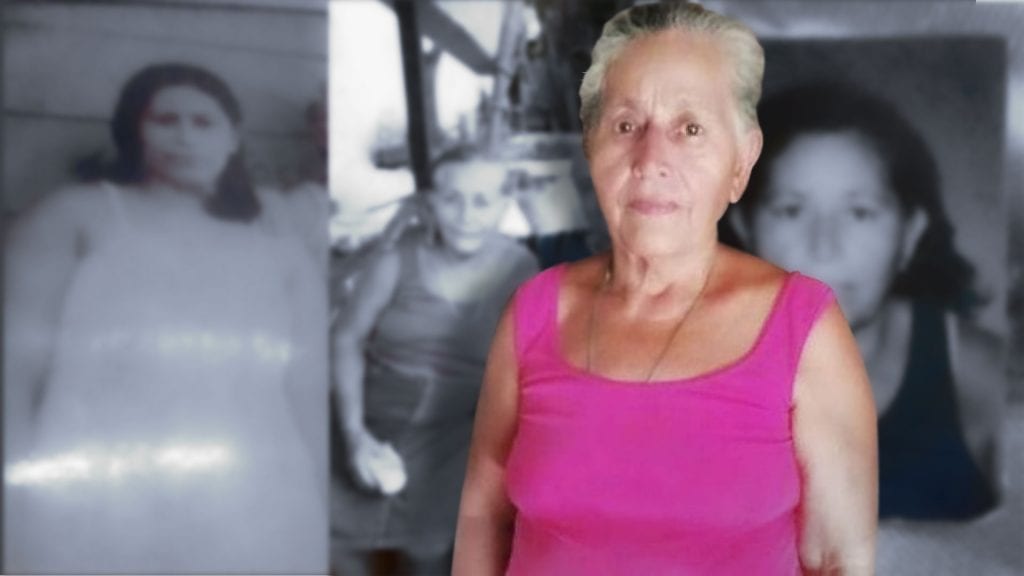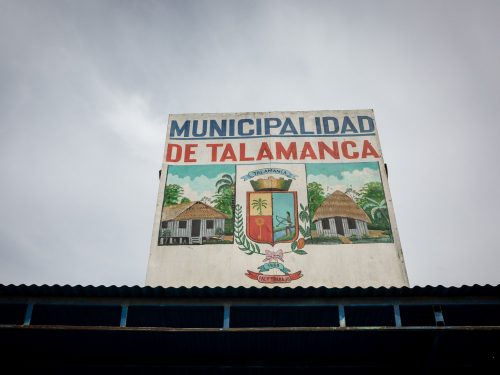
Justina Galo Urtecho sold lottery tickets in the Martina Bustos neighborhood in Liberia. She also made Nicaraguan food to sell and babysat her neighbors’ children. “She did everything to earn a little money,” her niece, Martha Galo, related.
She would have turned 70 on September 28 and had been living in Guanacaste for about 45 years. For her birthday, she planned to take all of her savings and go to Rivas, Nicaragua, where she was born.
After her husband’s death almost two years ago, she lived alone and, according to Galo, she didn’t feel safe.
She was all alone. Her husband and her four children died, so she would say that she was afraid of living so alone. She said that she was counting down the hours to live here with us,” said her niece, who lives in Nicaragua.
Her relatives reported what happened on social networks and told The Voice of Guanacaste that Justina was raped and killed on the evening of September 1, while she was home alone sleeping.
My aunt was raped, strangled and savagely beaten. They are animals. They found her naked, with blood all over her face and her (private) parts,” said her niece.
The Organism of Judicial Investigation (OIJ) reported Justina’s death in a bulletin on September 3. In the report, the institution does not mention sexual assault against the elderly woman.
When The Voice of Guanacaste asked OIJ about the sexual assault information, a press department spokesperson said he could not provide details. “Out of respect for the victim and the victim’s family, we never give that type of information.”

These photos were taken during several trips that Justina made to Nicaragua to visit her relatives. Her niece describes her as an outgoing and empathetic woman. “We will not rest until we find the murderers,” she stressed.
In addition to this feminicide, nine other women have been murdered in Costa Rica this year due to their gender. Just one day after Justina Galo was found dead, the prime suspect in killing Alison Bonilla confessed his guilt and was sentenced to six months of custody.
Contrary to what OIJ indicated, Galo’s relatives believe that it is important to mention that the elderly woman was a victim of rape. On social networks, tags like #NiUnaMenos (Not Woman Less) are used.
This Sunday, a group of women in Liberia led a march with other women from the community to demand justice for Justina and the nine other femicides that have happened in Costa Rica to date. Another 36 homicides of women were being investigated as of August 28 of this year, according to the Judiciary Observatory of Gender Violence.
If they wanted to steal from her, why would they have to rape her like they did? She was a little old lady alone. They knew what they were doing. That’s why they were so vicious with my aunt,” lamented her niece Martha.
Femicide or Feminicide?
Criminal law in Costa Rica for all forms of violence against women defines the crime of femicide as “the death of a woman who is in a marriage relationship, whether legally married or living together with her perpetrator.”
Since the man who killed her had no apparent romantic relationship with Justina, the Costa Rican justice system would not process it as a femicide.
However, in 1994, Costa Rica adopted the Belém do Pará Convention treaty, which extends the concept of femicide to any homicide of a woman due to her gender status.
Given that femicide is the extreme, fatal form of violence against women of all ages, it should be classified as such when the risk factor is being a woman,” the treaty indicates.
This country’s justice system does not use this term to investigate a case in a distinct way, but the Observatory does use it in its statistics.
In the psychoanalysis magazine Desde el jardín de Freud (From Freud’s Garden), Mexican feminist activist and academic researcher Marcela Lagarte theorizes that femicides are “hate crimes against women, misogynistic crimes coined in an enormous social and state tolerance of gender violence.”
The term feminicide, according to Lagarte, is used when “the authorities do not efficiently carry out their functions to prevent, avoid and punish them.” In Costa Rica, the Observatory and other institutions adopted this same concept as “expanded femicide.”
“Including the deaths within the expanded femicide is the Costa Rican judicial system’s response in order to have a statistic that records, includes and gives visibility to all the deaths of women due to gender,” indicates the Observatory’s website.
Costa Rican legislator Paola Vega presented a bill aimed at integrating the expanded femicide term into the penal code. Vega believes that the State fails women since it doesn’t classify murders in which there is sexist violence as femicide.
We don’t give judges more elements to prosecute crimes like this. We could have easier procedures. We could have more specialized experts. We wouldn’t have to be expecting six months of preventive prison without deciding the case,” she affirmed.
Her bill aims to designate any murder of a woman in which there is evidence of sexist violence, such as a sexual obsession with the victim, rape, finding the body naked, wounds on the victim’s private parts or bites as “expanded femicide.”
Under the proposal, Costa Rica would be able to impose prison terms of 14 to 20 years on anyone who commits it.
The legislator considers Justina’s murder to be expanded femicide because, according to the account from her relatives, the victim suffered a kind of violence that she would not have experienced had she not been a woman.
How men are murdered is not the same as how women are murdered, in which they are first victims of sexual violence, for example,” Vega emphasized.
OIJ reported that judicial authorities in Liberia are still investigating the circumstances of the case.
Martha Galo affirmed that all of Justina’s relatives are waiting for new information that might help them understand her aunt’s death.
“We want them to apply the full force of the law against those murderers, rapists. Don’t release them. Make them enforce the law,” Galo said.







Comments